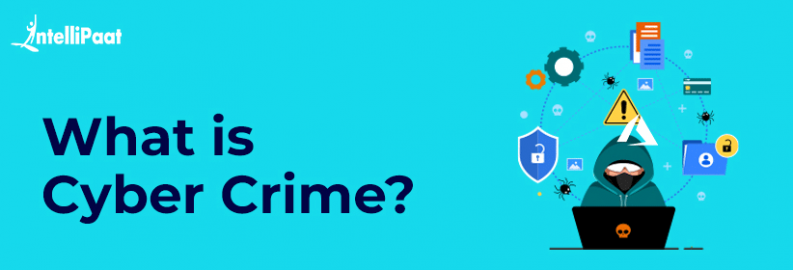
A mystery shopper is someone who visits a store, restaurant, or retail outlet and acts as an unbiased observer. This type of study allows a company or organization to gauge the quality of its sales, service, and job performance. It can also be used to assess compliance with industry regulations. To gather information on market trends, competitors, and other factors, mystery shoppers are employed by companies and organizations that conduct marketing research. Read on to find out more about the different types mystery shoppers.
Pay rates for mystery shoppers
There are many options for getting paid for mystery shopping. While some agencies pay monthly, others only pay you occasionally. Experience with agencies will make it easier for you to obtain more assignments and higher pay. The Observa app, for instance, is compatible with both Android and iOS devices. The average time it takes to complete an assignment is less than ten mins. You'll receive your payment the next business morning.
The majority of mystery-shopping jobs don't have a high salary and don't require you to own a car or hire a company. Before you begin a mystery-shopping job, make sure you understand the terms of the contract that you will sign with the agency. Once you've done some research, you should choose an agency that pays a fair rate. You should start with just one or two agencies. The pay rates for mystery shoppers are typically lower than other jobs but it's worth it if they allow you to make a full-time living.
Depending on where you are located and what the client is paying, you can earn anywhere from $5 to $100 for each assignment. Some companies don't pay at all, so they consider mystery shoppers to be freelancers and do not have to pay legal wages or offer employment benefits. Rideshare services can be used to make it easy to work from home. They pay as low $20 per hour and are readily available in major cities. Uber, for instance, charges $20 per an hour and is a good example a company that pays their workers.
Mystery shoppers' pay rates vary. Beginners can expect to earn $8 an hour. Experienced mystery shoppers could earn up to $25 an hour. But, it is important to keep in mind that salary information can sometimes be hard to find. Although mystery shoppers are generally paid between $40,000 and $70,000 annually, the salaries of these workers can vary widely. To earn more, you should work harder. As a mystery shopper, you won't regret it.
Methods to receive a refund by a mystery shopper
There are ways to get a refund from a mystery shopping project. Even though mystery shoppers do not work for mystery shopping companies they are still considered independent contractors. They must keep track of all earnings, regardless of whether they work for small businesses or large corporations. It is possible to receive a refund which is not what you expect. For more information on their refund policy, ask the mystery shopping agency.
Before signing up to mystery shop assignments, verify that you have the correct background information. Do not give a mystery shop company money or a check without verifying the identity. Then, find a reputable mystery shopping company that doesn't charge any registration fees. This is a red flag.

As compensation for mystery shopping, some scammers will send you a check. The mystery shopper will request that you wire the money. Because you don't have any guarantee of payment, there is no way to request a refund. If you receive cash payment and are not able to get a return, you can request a credit or replacement product.
Another way to get a refund from a mystery shopping project is to contact the company's referral program. Referral programs pay you a specific amount for each referral you send. This is a great way for you to make extra money. Some mystery shopping platforms even pay for transportation costs for their shoppers. When shopping, keep this in your mind and get reimbursed promptly.
Many mystery shopper frauds take advantage of this opportunity to seduce unsuspecting people. In some cases, these con artists try to sound like real people by sending out unsolicited emails and advertisements claiming to be mystery shopper jobs. They promise to work for you without screening you, and will ask you to send them money immediately. If you sign up with these companies, you may receive fake money checks or money orders. You will then be asked to deposit it into your personal account.
If you've signed up for a mystery shopper program, you're probably aware of the risks involved. The best way to protect yourself from a scam is to join a reputable mystery shopping company. Look for the MSPA membership and the contact information. You could also look online if you're still unsure. There are many mystery shopper websites that offer free jobs.
Avoid falling for scams and be a mystery shopper
Fake job websites are dangerous. Many scammy mystery shopping gigs target unsuspecting workers by using job boards. Do not sign up for mystery shopping programs if they ask you to pay. Sometimes, fraudsters pretend to be mystery shopping firms. There are legitimate mystery shoppers out there. However, they are very few.
Unsolicited calls and emails are not to be trusted. Many mystery shopper scams will ask you to provide your personal information, such as your date of birth and a valid bank account number. You should not fall for the scammer's convincing sales pitch. Fraudulent SMS messages are another way to fall for it. In these messages, the fraudster may claim that you've been chosen for the mystery shopper job, but the company you're applying with will never send you a text message.
Avoid wired money. Never wire money or send money to mystery shoppers. Scammers may send you checks as payment for products you haven’t tried. They tell you to wire the money back for various reasons, but this is a scam. It is impossible for you to get your money back after it has been wired. This pitfall is something to be aware of!

Do not answer mystery shopping calls or emails. Do not respond to unsolicited emails. Instead, hang up and do not answer. Do not give your personal information out to mystery shoppers. It's easy fall prey to this scam. Don't let this affect your financial future. Be vigilant and keep your eyes open. Before signing up, you'll have ample time to research the mystery shopper business.
Fake checks are often sent by fraudulent mystery shopping businesses. They don't provide any documentation and offer no guarantees. They may pretend to be legitimate mystery shoppers. To avoid getting scammed, check out the website address as well as the phone number for the mystery shopping company. This is a red flag that you should investigate immediately if they ask for your bank information or require you to provide bank details. Before you sign up, a reputable mystery shopper can tell you who the company really is.
Phony companies sending unsolicited email are examples of scams in mystery shopping. Do not pay a fee to apply for mystery shopping jobs. The only way to be sure your mystery shopper job is legitimate is to join the MSPA Americas. You can register for free by filling out the MSPA Americas online application.
FAQ
How to avoid fraudulent use of credit cards online
When you shop online using credit cards, ensure you carefully review your statements before making any purchase. Pay only what you owe on your bills. To check your bank statements frequently for suspicious activity, If you spot any unusual charges, immediately contact your card issuer. They will typically cancel the transaction or refund any money taken out of your account.
If you think you've been scammed, contact your local police department. You can file a report with the Federal Trade Commission (FTC) as well.
Does it make sense to ask for discounts on shopping?
Always try to negotiate a lower price when buying products. You don't have to be rude to ask about discount codes. If you do this politely, then they may offer you a deal. This could save you money in the end.
Is it really necessary to register my creditcard number for online shopping?
Registering for your credit is optional. However, if you wish to receive special offers and discounts, registering your card may be beneficial. It is always a good idea for you to verify your identity with the bank.
What about online shopping?
It is important that consumers know the information they are sharing with companies like Amazon.com. Amazon.com should be asked if consumers want to share any personal information. You may need to restrict your shopping to sites that you are comfortable sharing your personal data if you don't want to share this information.
Which are the best times to shop online?
Sunday is the best date to shop online for clothes. It's a time when you can have a look at all the different shops and pick out what you like. Monday is the best day to shop online for clothes. Last-minute shopping should be done Tuesday. Wednesday is the day you should begin shopping for Christmas. Thursday is the day you should begin planning for Easter. Start preparing for summer holidays by planning for Friday. Saturday is the day to start getting ready for school holidays. Finally, finish up any remaining tasks from the week on Sunday.
Statistics
- An approximately 90% increase in price affords Hotel X the opportunity of extreme profits under severe circumstances. (dos.ny.gov)
- The vast majority only change a password to protect privacy a few times a year (27 percent) or, more likely, never (35 percent). (pcmag.com)
- The tax is automatically added once you click the checkout button, so factor in an additional 20% when looking at the product page. (makeuseof.com)
- Beyond that, you'll be liable for a 25% import tax. (makeuseof.com)
External Links
How To
What are safe online shopping tips?
Safe online shopping is an important skill for anyone who wants to shop online safely. It's also beneficial to learn how to purchase from different websites, without being conned.
If you are looking for the best ways to buy items online, read on! This article explains all the tricks and tips that make sure you don't fall victim to scams.
-
Do your research. Before you decide to shop online, it's essential to do your homework first. Read reviews of the company you plan to purchase from, look for customer feedback, and get recommendations from friends and family.
-
Compare prices. If you're unsure whether a particular store is reputable, compare prices among several sellers. Use price comparison tools like Amazon Price Checker, Google Shopping, and Amazon Price Checker to help you compare prices. These tools allow you to see which retailers offer the lowest prices.
-
Pay attention to red flags. If you are browsing product pages, look out for red flags. You may find fake sites that use misspelled words and grammar errors. They often sell fake or incomplete products.
-
Pop-up windows are a danger. Pop-ups can be used to steal credit card numbers or passwords. These pop-ups can be closed by pressing "escape" and choosing another browser window.
-
Ask yourself questions. When you visit a website, think about the following questions: Does this website seem trustworthy? Do they offer the services I require? Can I trust the people behind this site?
-
Don't divulge your personal information. Unless you initiated the transaction or provided financial information, do not give out your Social Security number, bank account numbers, or credit card details by phone or email.
-
Avoid clicking links in emails. It's very easy to click on a link in an email and end up on a phishing site that looks exactly like the real thing. Only open emails from trusted sources (such as banks) to avoid falling victim to this kind of fraud.
-
Use strong passwords. Strong passwords must include numbers, symbols, and letters. Keep your password confidential and don't share it with anyone else.
-
Take care when downloading files. Never open attachments from unknown senders and always download files directly from the source. Never open attachments from unknown recipients. Also, delete attachments that ask for you to install a program as soon as possible.
-
Report suspicious activity. If you suspect your identity has been stolen, contact your local police department immediately. You may also file a complaint to the Federal Trade Commission.
-
Protect your device. Make sure your computer has anti-malware protection. It could help stop hackers from accessing your private info.
-
Watch out for scammers targeting seniors. Seniors are more susceptible to scammers because they are less likely than others to be able to spot fake messages and websites.